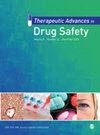Pirfenidone-induced liver injury, a case report of a rare idiosyncratic reaction
IF 3.4
3区 医学
Q2 PHARMACOLOGY & PHARMACY
引用次数: 0
Abstract
Nearly all medications carry the risk of drug-induced liver injury (DILI). Idiosyncratic reactions are rare and poorly predictable, and the mechanisms are not always well understood. Pirfenidone is an oral antifibrotic drug used to treat idiopathic pulmonary fibrosis. While elevation of liver enzymes is a common adverse reaction during therapy, it rarely leads to discontinuation or reduction of the drug. Although isolated cases of liver damage or liver failure have been reported, they are infrequent. This report presents the case of a 70-year-old woman with known idiopathic pulmonary fibrosis, depression, hypothyroidism, and hypercholesterolemia who presented at our emergency department with jaundice, anorexia, and asthenia. The patient’s medication regimen included lamotrigine, simvastatin, levothyroxine, and pirfenidone, which had been introduced 6 months prior. Laboratory testing revealed elevated liver enzyme levels consistent with acute hepatocellular hepatitis. Following a medical workup, which included anamnesis, laboratory testing, iconographic investigations, and liver biopsy, we concluded that the patient had suffered from pirfenidone-induced liver injury. Pirfenidone was withdrawn, and liver tests gradually improved. The purpose of this clinical case report is to highlight this rare adverse reaction and to make clinicians aware of its assessment and management. In 2018, only one other case of severe liver failure leading to the death of the patient was reported. Early detection of potential DILI during the workup is crucial to discontinue the suspected medication promptly. Any drug-induced hepatitis must be reported for registration.吡非尼酮诱发肝损伤,一例罕见特异性反应的病例报告
几乎所有药物都有药物性肝损伤(DILI)的风险。特发性反应非常罕见,而且难以预测,其机制也不总是很清楚。吡非尼酮是一种口服抗纤维化药物,用于治疗特发性肺纤维化。肝酶升高是治疗过程中常见的不良反应,但很少导致停药或减药。虽然也有个别肝损伤或肝衰竭病例的报道,但并不常见。本报告中的病例是一名 70 岁女性,已知患有特发性肺纤维化、抑郁症、甲状腺功能减退症和高胆固醇血症,因黄疸、厌食和气喘到我院急诊科就诊。患者的用药方案包括拉莫三嗪、辛伐他汀、左甲状腺素和吡非尼酮,这些药物是在 6 个月前开始使用的。实验室检测显示肝酶水平升高,与急性肝细胞性肝炎相符。在进行了包括病史、实验室检测、影像学检查和肝活检在内的医学检查后,我们得出结论,该患者患有由吡非尼酮引起的肝损伤。停用吡非尼酮后,肝脏检查结果逐渐好转。本临床病例报告旨在强调这种罕见的不良反应,并让临床医生了解其评估和处理方法。2018 年,仅报告了另外一例导致患者死亡的严重肝功能衰竭病例。在检查过程中及早发现潜在的 DILI,对于及时停用可疑药物至关重要。任何药物性肝炎都必须上报登记。
本文章由计算机程序翻译,如有差异,请以英文原文为准。
求助全文
约1分钟内获得全文
求助全文
来源期刊

Therapeutic Advances in Drug Safety
Medicine-Pharmacology (medical)
CiteScore
6.70
自引率
4.50%
发文量
31
审稿时长
9 weeks
期刊介绍:
Therapeutic Advances in Drug Safety delivers the highest quality peer-reviewed articles, reviews, and scholarly comment on pioneering efforts and innovative studies pertaining to the safe use of drugs in patients.
The journal has a strong clinical and pharmacological focus and is aimed at clinicians and researchers in drug safety, providing a forum in print and online for publishing the highest quality articles in this area. The editors welcome articles of current interest on research across all areas of drug safety, including therapeutic drug monitoring, pharmacoepidemiology, adverse drug reactions, drug interactions, pharmacokinetics, pharmacovigilance, medication/prescribing errors, risk management, ethics and regulation.
 求助内容:
求助内容: 应助结果提醒方式:
应助结果提醒方式:


